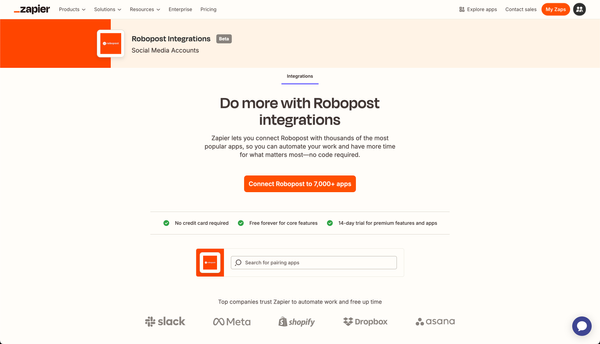How Automation Can Lead to More Personalized Social Media Interactions
Explore how AI enhances social media by personalizing interactions while balancing privacy and diversity.

Automation in social media has introduced new ways to create personalized interactions using advanced AI tools. These tools customize content and experiences for each user. This article looks at how automation is changing social media by improving user engagement, making content creation more efficient, and shaping the future of digital interactions, while also balancing personalization with privacy concerns.
Key Takeaways
- AI-driven personalization in social media creates content that connects personally with users, boosting emotional connections and engagement.
- Hyper-personalization uses AI to consider not just demographics but also user behavior and interactions, offering real-time relevant experiences with tools like AI chatbots.
- Ethical concerns arise with AI personalization, including issues of user privacy and the risk of creating filter bubbles that limit diverse content exposure.
- Automation makes content creation more efficient, saving time and ensuring consistent, high-quality, targeted content delivery to users.
- The future of social media depends on AI's ability to predict user behavior, work with algorithms, and build more meaningful connections between brands and audiences.
The Evolution of Personalized Content in Social Media

From Generic to Personalized: The Shift in Content Creation
The move from generic to personalized content on social media shows how powerful personalization can be. Brands are starting to see the value in creating content that feels personal to their audience. This change is mainly because AI and machine learning can analyze a lot of user data to figure out what people like and how they behave.
- Understand audience demographics
- Analyze engagement patterns
- Tailor content to user interests
These steps make sure the content is not only relevant but also timely and engaging. This leads to a more personalized social media experience, strengthening the connection between brands and their audiences.
The main goal is to deliver content that feels specially made for each user, improving their overall experience.
Analyzing User Data for Customized Experiences
Analyzing user data to create personalized experiences is essential. AI algorithms play a key role in delivering content recommendations that match individual preferences, browsing history, and interactions. By using these insights, social media platforms can create a feed that greatly boosts user engagement and satisfaction.
Imagine an AI system that doesn't just look at demographics but also examines browsing patterns and social media interactions to offer highly personalized recommendations. This system improves customer experiences and increases conversion rates by providing content that users are more likely to find relevant and interesting.
Understanding your customers better through AI's data analytics, machine learning, and predictive abilities allows for large-scale personalization of the customer experience. This method ensures that every piece of content feels personal and arrives at just the right time, much like receiving a letter with your name on it, making it more likely to grab the audience's attention.
The Rise of AI-Driven Engagement Strategies
The use of AI in social media is changing how platforms interact with users. AI can analyze and predict user preferences, leading to a new era of personalized content that matches users' interests and behaviors.
AI strategies go beyond just picking content; they also include optimizing when to post, targeted ads, and features like chatbots. These tools work together to create a smooth and engaging user experience. Here are some key benefits of using AI in social media:
- Increased Efficiency: Automating routine tasks lets you focus more on creative and strategic work.
- Enhanced Personalization: Delivering content that users are more likely to enjoy and find relevant.
- Improved Customer Insights: Understanding user preferences better to shape future content strategies.
Enhancing User Experience Through AI Personalization

Building Emotional Connections with Targeted Content
The rise of AI in social media has changed how content is delivered to users. By customizing content to individual interests and preferences, brands can create a deeper emotional connection with their audience. This personalized approach makes each interaction feel unique and important, like receiving a letter addressed to you personally.
Understanding what triggers customers emotionally and psychologically is key. Here's how AI personalization improves user experience:
- Understanding the Audience: Learning who the audience is and what they like.
- Content Distribution: Automatically sending content that resonates personally.
- Retargeting & Remarketing: Creating campaigns that engage users based on their past actions.
Businesses that segment their audience and create emotionally resonant content not only strengthen customer relationships but also increase sales with engaging marketing strategies.
Hyper-Personalization: Beyond Demographics and Purchase History
Hyper-personalization is the future of social media interactions, where AI systems analyze a user's entire online activity to deliver highly personalized content. Imagine content customized to your browsing patterns, social media behavior, and real-time actions. This goes beyond basic segmentation, offering a level of customization that greatly improves user experience and boosts engagement.
Here are some ways organizations use AI to personalize the customer experience:
- Predictive analytics for smart product recommendations
- Customized promotions for specific audience groups
- Personalized reminders based on purchasing habits
By understanding the audience, content distribution becomes highly personalized. AI ensures each user receives content that resonates with them at the best time. The advantage of AI lies in its ability to personalize at scale, offering a deep understanding of each individual, which traditional marketing tools often can't match.
Balancing Personalization with User Privacy

Navigating the Ethical Implications of Data Usage
As social media platforms use AI to personalize user experiences, ethical concerns become very important. Using AI in marketing and content creation must consider data privacy, potential biases, and the accuracy of the algorithms.
Businesses need to ensure that AI-generated content does not replace genuine human interactions. Being transparent is crucial; users should know how AI is influencing their online experience. Following data privacy laws and avoiding biases that could harm certain customer groups are essential ethical practices.
The ethical issues of AI-generated content also affect jobs. While AI can make content creation more efficient and cost-effective, it might replace human content creators. A balanced approach that combines AI-generated and human-created content might be the best way to move forward.
The Creation of Filter Bubbles and Its Impact
The use of AI in social media has created a highly personalized user experience, where content is customized to each person’s preferences. However, this can lead to filter bubbles, which are digital spaces where users only see content that matches their existing views, limiting their exposure to different ideas.
While filter bubbles can increase user engagement by showing content that interests them, they can also narrow a user’s perspective. Social media platforms need to balance personalization with diversity to maintain a healthy flow of information.
- Ethical implications: Filter bubbles can control what users see without them knowing.
- User engagement: Personalized content can keep users on platforms longer but might restrict them from seeing new ideas.
- Diversity of content: Providing a mix of content is important to avoid echo chambers and encourage a broader view.
Maintaining Diversity and Inclusivity in Personalized Content
While people expect personalized experiences, it's important to make sure that personalization doesn't reduce diversity and inclusivity. Personalized content should show a wide range of views and not trap users in filter bubbles. To achieve this balance, consider these points:
- Regularly check and adjust AI algorithms to prevent biased content recommendations.
- Share content from different cultures, viewpoints, and interests to create a more inclusive environment.
- Listen to user feedback to find and fix any issues with content diversity.
The goal is to give users a tailored experience that matches their interests while also introducing them to new ideas. This approach makes the user's social media experience richer and helps create a more diverse and inclusive online community.
Optimizing Content Creation with AI Automation

Streamlining the Content Development Process
Automation is changing how content is made. Using AI tools, businesses can automate creating text, images, and videos to match user preferences and trends. This makes the process faster and keeps the content consistent and scalable.
The benefits of using AI for content creation include:
- Increased efficiency: Automated systems can create content faster than humans.
- Scalability: As demand grows, AI can produce more content without losing quality.
- Personalization: AI uses user data to make content that fits personal interests.
- Focus on core business: With less time spent on content creation, teams can focus more on key business strategies.
Tools like Robopost provide AI features and allow you to schedule your posts in advance.
Leveraging AI for Time-Efficient Content Strategies
Creating content quickly is crucial. AI tools are transforming this by automating routine tasks, giving creators more time for strategic and creative work. For example, AI can make text, images, and videos using set guidelines and user data to create content that connects with audiences.
AI's benefits go beyond just automation. It boosts personalization, a key factor in engaging users, by tailoring content to individual preferences and behaviors. This makes the content more relevant and helps build a stronger connection with the audience.
The Role of Automation in Consistent Content Delivery
Automation in social media content delivery is transforming how brands stay consistent and visible. AI tools are now essential for creating and scheduling content on different platforms. These tools study trends and user preferences to make engaging posts, graphics, and videos, ensuring a constant flow of material that connects with the audience.
Using advanced automation, businesses can increase their content creation without needing more staff. This not only improves productivity but also allows for more personalized and relevant content, leading to higher engagement and more conversions.
Conclusion
Automation in social media has greatly increased personalization, changing how brands connect with their audience. By using AI to study user data, social media platforms can now provide highly personalized content, which strengthens connections and boosts user engagement. This customized approach not only gives users content that matches their preferences but also helps brands reach their target audience more efficiently. However, it's important to balance personalization with privacy, making sure user data is handled carefully to keep trust and avoid echo chambers. As we use AI in social media, we must also be aware of its effects, aiming for a balance that maximizes benefits while promoting inclusivity and diversity online.
